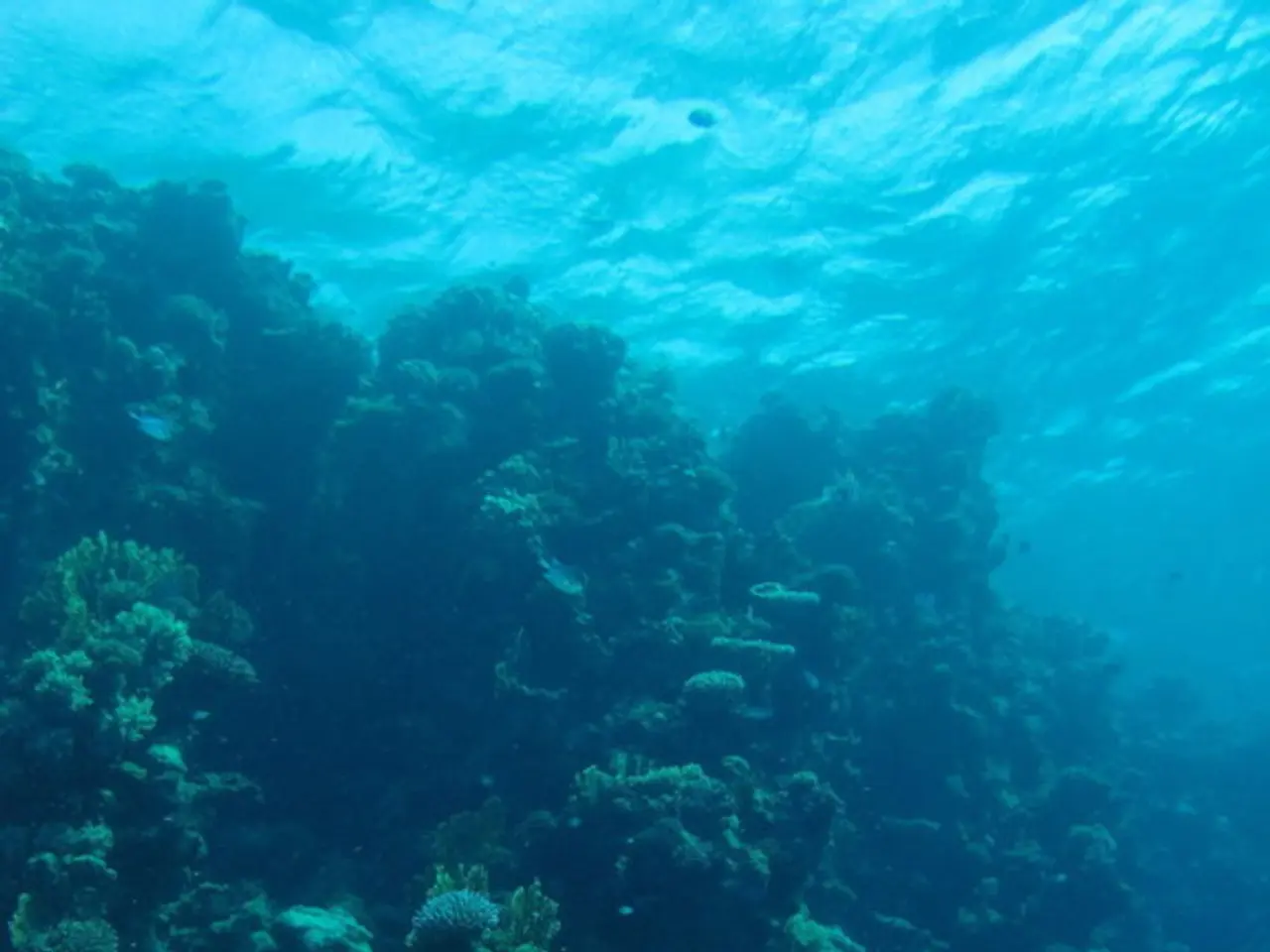Ocean Conference Summary: Significant Points for Financial Companies
In the ongoing pursuit of a sustainable blue economy and ocean conservation, various initiatives and instruments are being implemented to align finance, governance, and international cooperation. Here are some key developments that have taken place as of mid-2025:
1. Ocean Investment Protocol (2025): Launched by the United Nations Global Compact and UNEP Finance Initiative, this protocol aims to guide financial institutions, governments, and ocean industries in investing responsibly, focusing on sustainable fisheries, offshore renewable energy, and maritime transport. It serves as a strategic framework to mobilize finance for a climate-resilient and innovative blue economy.
2. One Ocean Finance: Although no specific mention of "One Ocean Finance" was found, related initiatives like the Ocean Positive Coalition at the Finance in Common Summit indicate a growing momentum to support ocean finance partnerships and blended finance mechanisms for nature-positive investments.
3. Agreement on Marine Biological Diversity of Areas Beyond National Jurisdiction (BBNJ Agreement): Adopted in June 2023 at the UN, this treaty aims to conserve and sustainably use marine biological diversity in international waters. As of mid-2025, 49 countries have ratified the treaty, with 60 ratifications needed for it to enter into force. The treaty focuses on establishing marine protected areas, ensuring fair sharing of marine genetic resources, and improving high seas governance.
4. Global Plastics Treaty: Negotiations are ongoing for a legally binding global treaty on plastic pollution, aiming to curb marine plastic pollution as part of broader ocean governance and conservation goals. This treaty is expected to have significant implications for the finance sector.
5. Marine Biodiversity Credits: While specific mentions are scarce, the increasing focus on nature-positive investments, blended finance, and innovative mechanisms suggests an emerging interest in market-based tools like biodiversity credits to support marine conservation goals.
Additional noteworthy developments include: - The Nice Ocean Action Plan, expected for adoption at the 2025 UN Ocean Conference, will provide an intergovernmentally agreed, action-oriented framework to advance SDG 14, including finance and partnerships. - The Latin American and Caribbean Development Bank (CAF) announced a commitment to invest USD 2.5 billion through 2030 in the region’s blue economy, targeting coastal management, sustainable fisheries, marine ecosystem conservation, clean ocean technologies, and sustainable tourism.
These collective advancements represent significant progress in aligning finance, governance, and international cooperation towards a sustainable blue economy and resilient ocean ecosystems. Ratification and implementation efforts remain crucial in the coming years to fully realize these frameworks' potential.
In a related development, our organisation co-hosted an event focused on plastic reduction and circular economy solutions. Furthermore, our Sustainable Blue Economy Finance Initiative supports financial institutions in understanding and responding to key environmental agreements and ocean-related initiatives. As co-facilitator of the Biodiversity Credit Alliance, our organisation is helping to ensure marine biodiversity credit markets are credible, transparent, and scalable. The Finance Leadership Group on Plastics, convened by our organisation, is also working to support the potential impact of the Global Plastics Treaty. Financial institutions interested in learning more or getting involved in the Sustainable Blue Economy Finance Initiative can do so here.
- The Ocean Investment Protocol, launched by the United Nations Global Compact and UNEP Finance Initiative, serves as a strategic framework for financial institutions, governments, and ocean industries to invest responsibly in sustainable sectors like fisheries, energy, and transport, focusing on a climate-resilient blue economy.
- The increasing emphasis on nature-positive investments and blended finance mechanisms, such as the Ocean Positive Coalition and potential marine biodiversity credits, indicates a growing momentum to support ocean finance partnerships, reflecting the transition towards sustainable development.
- The BBNJ Agreement, adopted in June 2023 at the UN, aims to conserve and sustainably use marine biological diversity in international waters, establishing marine protected areas, fair sharing of marine genetic resources, and improving high seas governance, with 49 ratifications as of mid-2025 and 60 needed for it to enter into force.
- Negotiations for a legally binding global treaty on plastic pollution are ongoing, aiming to curb marine plastic pollution and have significant implications for the finance sector as part of broader ocean governance and conservation goals.




